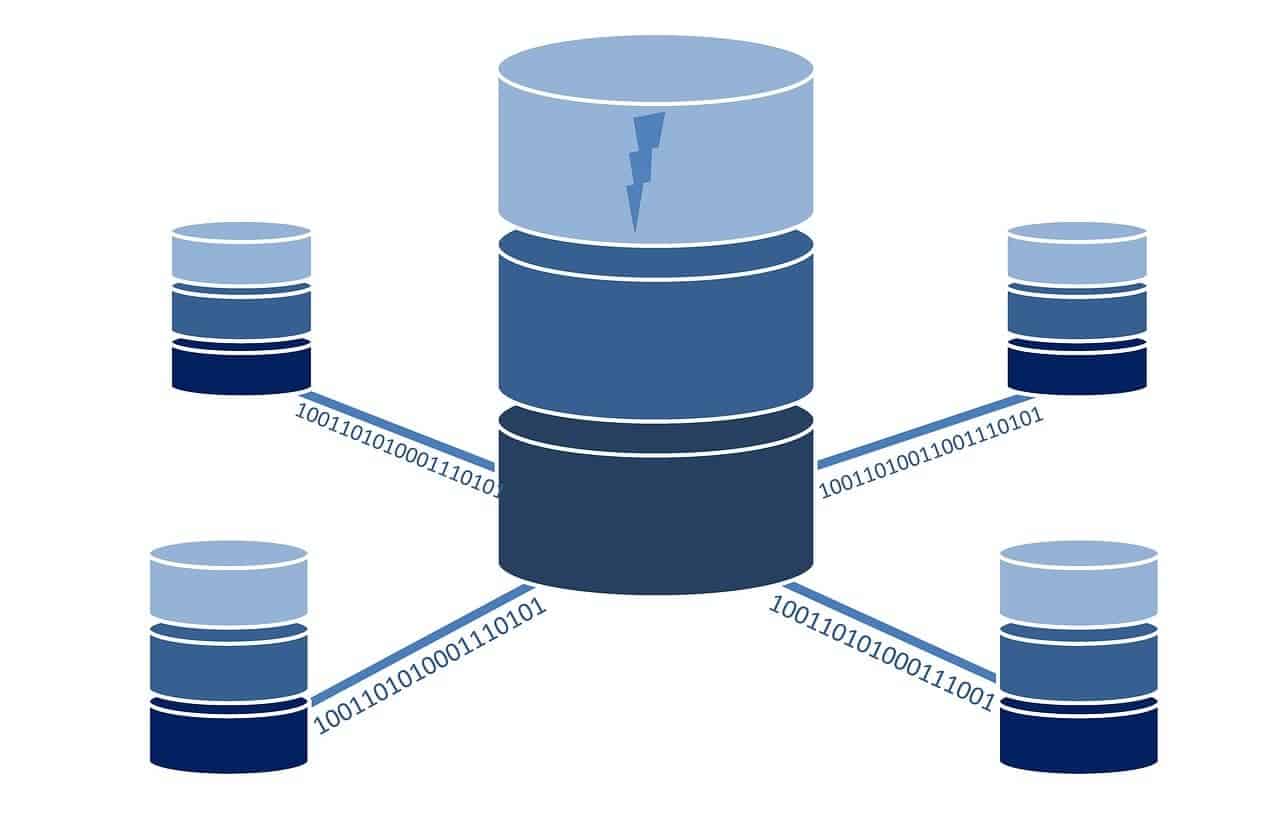Becoming a Database Administrator (DBA) is an increasingly sought-after career choice, with the number of job postings in this area growing by over 200% since 2019. With the potential for financial stability and freedom that comes with such a role, it’s no surprise that many individuals have set their sights on becoming a DBA. This article will explore one individual’s journey to make their dream of becoming a DBA come true.
The process took a lot of work, from needing more knowledge about database administration to learning how to develop operational databases and build data models. It required dedication, hard work, and persistence – all essential qualities for any aspiring DBA. This individual overcame numerous obstacles in pursuing their goal by developing strong technical skills in various development platforms and mastering SQL fundamentals.
The result? A successful transition into a full-time DBA role where they can now use the wealth of knowledge accumulated throughout the journey to create secure databases that are reliable and efficient. Read further as we delve deeper into this individual’s success story!
Definition Of Database Administration:
Database Administration (DBA) is an ever-evolving profession within Information Technology. It involves various tasks and responsibilities for managing, maintaining, developing, and administering data storage for organizations. DBA professionals ensure that databases meet their organization’s performance, reliability, scalability, security, and availability needs. They must also know current trends in database technologies and be able to identify potential issues before they occur.
At its core, Database Administration requires technical skills such as system administration, programming languages, scripting languages, and software development methodologies; however, more is needed to make someone successful in this role. In addition to technical skills, DBAS must possess strong interpersonal communication and problem-solving abilities to collaborate effectively with other technology team members. With these skills combined, DBAs can successfully ensure the health of corporate data systems while providing an invaluable service to their organization.
Moving on from here, we will look at the qualifications and skills needed for the position of Database Administrator.
Qualifications And Skills Needed:
An individual must possess specific qualifications and skills to become a database administrator. A database administrator should deeply understand computer hardware, software applications, operating systems, network protocols, data security, and administration procedures. In addition, the database administrator must be proficient with database development tools such as Structured Query Language (SQL) and other query languages.
Moreover, knowledge of programming concepts like loops and conditional statements is essential for the position. Furthermore, problem-solving abilities help ensure that any issues encountered can be resolved quickly and efficiently. Effective communication of complex technical information in an easy-to-understand language is also crucial for successful job performance. Additionally, excellent organizational skills are necessary to keep track of multiple databases and their related components.
Lastly, having experience working in IT departments or similar organizations provides valuable insight into relevant technologies used by dbas. With these qualifications and skills, a database administrator will be prepared to take on the duties and responsibilities of this enriching career path.
Job Duties And Responsibilities:
As a Database Administrator (DBA), the primary responsibilities of managing, maintaining, and developing databases are significant.
These duties include:
- 1. Ensuring data integrity by identifying areas for improvement in database performance and design.
- 2. Creating backup strategies to protect data from loss or damage caused by hardware/software failures or malicious attacks.
- 3. Developing scripts to automate system administration tasks such as index rebuilds, setting up users and granting permissions, running reports, etc.
- 4. Monitoring database usage metrics to identify potential query performance or resource utilization issues and proactively resolving them before they affect customer experience.
- 5. Managing user security, auditing and keeping database secure.
- 6. Upgrading databases with testing a lot of patching the database before upgrade.
- 7. Creating accurate and company standard disaster management policy.
- 8. Document all database activities for future planning.
- 9. Managing storage management with future database growth prediction.
The role of the DBA is critical because it ensures data protection and provides freedom through the automation of mundane tasks associated with manual maintenance and management of databases.
By leveraging scripting languages like SQL and Python, DBAs can create automated processes that reduce workloads on IT staff and free up resources for more critical initiatives related to business growth and expansion. That allows businesses to maximize efficiency while minimizing costs which is always beneficial in an increasingly competitive marketplace.
Benefits Of Becoming A DBA:
Becoming a DBA is an exciting career path that provides many advantages. DBAs can work with cutting-edge technologies, are in high demand by organizations of all sizes, and have the potential to earn substantial salaries. In addition, DBAs can develop their technical skills while working on challenging projects and be part of a creative team environment.
The position also offers excellent opportunities for growth, advancement, and job security. The challenges associated with being a DBA provide unique experiences which can lead to increased self-confidence and personal fulfillment. Finally, this career choice allows individuals to use their knowledge and expertise to help businesses succeed while enjoying a flexible schedule or telecommuting options. With these benefits in mind, it is no wonder why so many people seek out the role of Database Administrator!
Ready to take on the challenge? Preparing for the role requires dedication, time management skills, and commitment to continuous learning.
How To Prepare For The Role:
Achieving the dream of becoming a successful Database Administrator (DBA) is like climbing Mount Everest—it takes effort, dedication, and commitment. Aspiring DBAs must have an in-depth understanding of database development and maintenance processes and strong technical skills such as SQL programming to prepare for the role. They should also be familiar with industry trends to ensure they can effectively support their organization’s goals.
Aspirants must develop problem-solving skills since many tasks require troubleshooting or debugging existing databases. Aspiring DBAs must also possess good communication and interpersonal skills to work well with other stakeholders such as clients, developers, and system administrators. Additionally, prior experience with data storage solutions will help them better understand how these solutions fit into the more outstanding IT infrastructure.
The right employer can make all the difference in achieving success in any field — especially one as complex as DBA. It pays to research potential employers before applying for positions; this allows applicants to determine whether their values align with those of the company, if there are opportunities for learning new technologies and if there is career growth potential within the organization. Taking time to find the ideal job opportunity increases the chances of landing a great position and finding lasting fulfillment in one’s chosen profession.
Finding The Right Employer:
Finding the right employer for a DBA is essential. Choosing an organization that values database administration and offers ample growth, training, and development opportunities should be paramount. Investigating if the company has invested in the resources and technology required to support its databases securely and efficiently is essential. An ideal candidate should also look at whether or not there are any existing database standards or procedures already established within the organization. Identifying these processes or procedures can help determine how well-established their current system architecture is and how much effort will be needed to maintain it effectively.
It is equally vital to establish what type of data this company collects, stores, transmits, and analyses daily, including topics such as customer transactions, financial records, emails, etc., which could all come with different levels of responsibility when managing them properly. The size of the database may also play a role in determining workloads, as more extensive scale databases will require more time spent administrating than smaller ones. These factors must be considered before applying for any specific position to ensure a successful career transition into Database Administration.
Researching potential employers thoroughly beforehand helps create realistic expectations regarding salary, benefits packages, and job duties while providing insight into possible avenues for professional growth down the line. This information provides prospective candidates with an informed decision about where they want to take their career path next – allowing individuals who have worked hard to achieve their dream an opportunity to make sure it’s worth achieving after all. With accurate preparation comes confidence in moving forward toward learning from experienced DBAs who have been through similar experiences themselves.
Learning From Experienced DBAs:
Having found the right employer, one must now learn from experienced DBAs. It is an essential step in the journey to becoming a successful DBA. It involves knowledge of the industry and understanding how to work with data efficiently. Learning from experienced DBAs can provide invaluable insight into what it takes to excel in this field.
One way to learn from experienced DBAs is through observation and mentorship programs. Newbies can gain insights into best practices for working with databases and other related technologies by observing established professionals performing their daily duties. Additionally, mentorships allow aspiring DBAs to ask questions to help them navigate specific tasks or challenges associated with database management more effectively. Mentors are often willing to share tips on how to save time, avoid common mistakes, and troubleshoot potential issues before they become significant problems.
In addition, attending conferences and seminars related to database administration can benefit those looking to expand their knowledge base and network with peers already well-versed in the subject matter. These events allow attendees to get guidance from seasoned professionals and exchange ideas that could lead to improved solutions for challenging tasks such as managing large amounts of data within tight timelines.
Tips For Succeeding As A DBA:
Success as a Database Administrator (DBA) requires more than technical knowledge and expertise. A successful DBA must also be organized, efficient, and motivated to stay current on the newest industry trends and tools. Here are some tips for succeeding in this role:
- Planning ahead:
- Prioritize tasks so that you can focus your time efficiently and effectively.
- Make sure to plan for any contingencies when working with databases or dealing with users’ requests.
- Establish clear guidelines on when changes should be made and how they will be implemented.
- Keeping up-to-date:
- Stay abreast of the latest technologies related to database management systems such as Oracle, SQL Server, etc.
- Keep an eye out for new applications that could help increase productivity or save time and money.
- Participate in user forums, conferences, and other events where people working with similar software might gather to discuss their experiences.
- Staying organized:
- Develop a system for tracking all tasks associated with managing databases, including installation, maintenance, backup/restore operations, tuning parameters, security settings updates, etc.
- Utilize automation whenever possible to ensure consistent performance throughout the entire process.
- Track progress regularly by reviewing reports from monitoring systems or manually checking key metrics like query response times or disk space usage levels.
These strategies can help DBAs become more effective at their jobs while increasing satisfaction among end users who depend on them for reliable service delivery. With proper planning, staying up-to-date on relevant technology advancements, and organization skills in place, DBAs have a better chance of being successful in their roles over the long term.
Time management is essential to achieving this goal; understanding what needs to be accomplished each day and having the ability to prioritize tasks accordingly is vital for reaching desired outcomes while meeting deadlines along the way.
Managing Your Time Effectively:
As a Database Administrator (DBA), managing time effectively is essential to success. Allocating the right amount of time for each task while avoiding procrastination and multitasking can help maintain optimal productivity in complex projects.
To do this successfully, using tools such as calendars, reminders, goal-tracking applications, and other methods is essential to keep you on track with your assignments.
In addition to using these tools, setting boundaries between work hours and leisure activities is vital to prevent burnout and reduce stress levels. Regular breaks throughout the day also help reenergize mental faculties to tackle tasks more efficiently. Establishing an effective system of personal management requires forethought and dedication; however, if done correctly, it should result in greater job satisfaction and improved overall results.
With increased focus on efficiency comes the opportunity to pursue new challenges without sacrificing quality or exceeding deadlines. Proper time management can open up possibilities that may have otherwise been out of reach due to a lack of resources or limited availability.
Keeping Up With Technology Trends:
As a Database Administrator (DBA), staying up-to-date on technology trends is essential to success. There are several methods for keeping informed. One method is to read blog posts and articles from authoritative sources, such as DBTA Magazine or Oracle Community Network. Additionally, attending conferences or webinars can provide valuable insights into current technologies and upcoming trends.
These activities help to increase knowledge of industry best practices and give insight into potential opportunities.
Networking with other professionals in the field also provides a great way to stay abreast of new developments. For example, joining professional organizations like the Association for Computing Machinery (ACM) offers members exclusive resources, events, and networking opportunities to exchange ideas and collaborate with peers in their respective fields. By leveraging these networks within the DBA community, one has an invaluable resource for staying informed about emerging technologies and strategies for adapting those tools to meet business needs.
Networking Opportunities In The Field:
As a Database Administrator (DBA), staying on top of technology trends and exploring networking opportunities in the field is essential. Networking allows professionals to build relationships, gain insight into new technologies, exchange ideas with colleagues, and develop contacts that can be valuable resources throughout their careers.
There are many ways for DBAs to network, such as:
- * Joining professional organizations or associations
- * Attending industry conferences or events
- * Participating in online forums and discussion groups,
- * Connecting with other experts via social media platforms.
Taking advantage of these opportunities helps enhance technical skills while providing access to career advice from experienced professionals who understand the field. Building solid connections through networking can also open doors to potential job offers, mentorship programs, and research collaborations between universities and businesses.
Even attending local meet-ups with fellow DBAs on various topics can expand knowledge and create new perspectives on current issues facing database administration today.
Networking provides an invaluable opportunity for personal growth and development within the DBA profession by connecting individuals with like-minded people worldwide.
With this broadened exposure comes increased awareness which leads to a better understanding of technological advancements in the industry – allowing one to stay ahead of emerging challenges and capitalize upon any upcoming opportunities. This information will enable DBAs to make more informed decisions about future goals and position them for success as they advance in their careers. The future of database administration holds great promise; however, without proper preparation through networking now, a such potential may never be realized.
The Future Of Database Administration:
The future of Database Administration is an exciting one. With the introduction of new technologies, such as cloud computing and big data, database administrators must be ready to embrace change and remain up-to-date with the latest trends in the field. As technology advances, so will the need for skilled DBAs to manage large databases efficiently while ensuring their security.
In addition to mastering these new technologies, database administrators must ensure they can stay ahead of ever-evolving cyber threats. DBAS must comprehensively understand how best to protect against malicious actors attempting to gain access to sensitive information stored within company networks.
Additionally, they need to understand how best to utilize existing tools and resources to monitor activity on systems and detect potential breaches before any damage is done. By doing so, organizations can maintain their integrity and trustworthiness with customers and stakeholders.
Ultimately, database administration professionals play a critical role in safeguarding organizational data from external threats and helping businesses leverage emerging technologies—allowing them to take full advantage of what modern IT infrastructure offers. Consequently, those looking at entering this profession should recognize its importance in today’s digital landscape and seek out opportunities that allow them to develop the skills necessary for success in this field.
Don’t be afraid if you are fresher. Oracle DBA:
If you are fresher Oracle DBA and have above all abilities, you would get a job very quickly because many companies are providing the chance to fresher. Hiring L3/L4 resources is very costly to them, that’s why they are giving preference to fresher too.
Conclusion:
The Database Administration (DBA) field is a vibrant and growing technology area. It requires an individual to possess technical skills, manage time effectively, and stay current with technological trends. With this knowledge, DBAs can ensure efficient data management practices, network with other professionals in the field, and secure job opportunities for themselves.
Statistics show that in 2018, over 5 million DBA jobs were available worldwide. This number has steadily increased each year since its initial reporting in 2014. The demand for database administrators continues to rise due to advances in information technologies and the need for businesses to always have secure databases. As such, it is crucial for aspiring DBAs to be prepared by obtaining the relevant qualifications and training necessary for success within the industry.
Despite requiring a high level of expertise and dedication from those interested in pursuing a career as a DBA, becoming one can provide many personal and professional rewards. You gain greater control over your working hours and experience long-term satisfaction by helping organizations better utilize their resources while protecting sensitive data from malicious threats. By following the steps outlined above, individuals can ensure they are well-equipped to become successful Database Administrators.






















